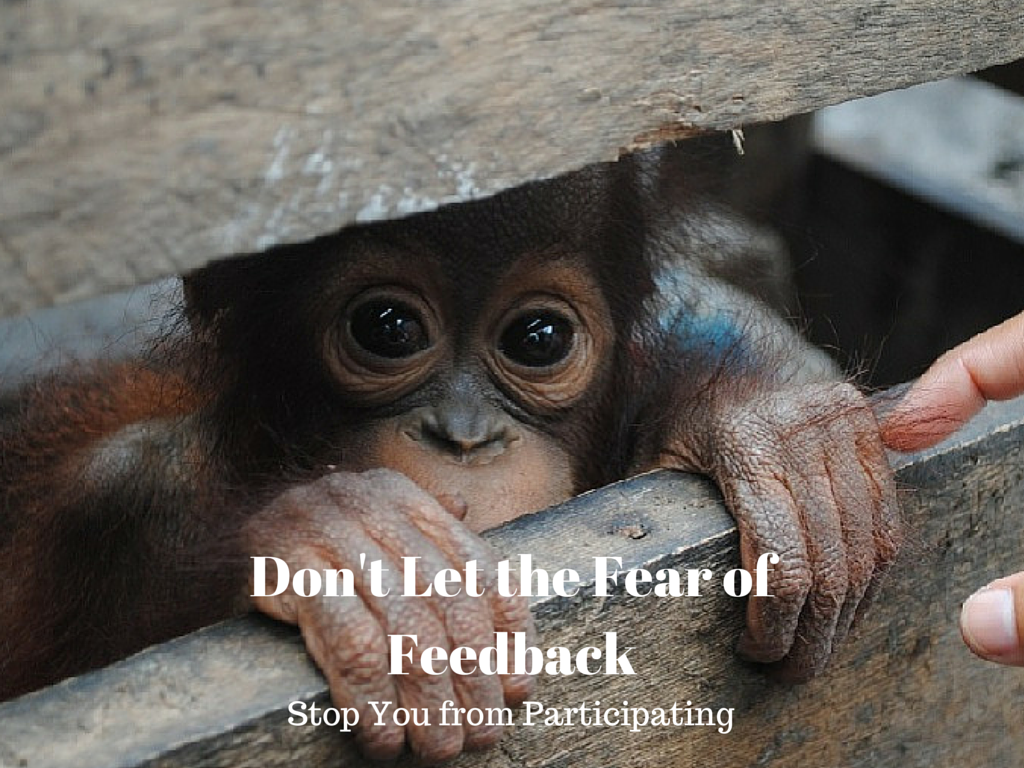Every day when I go online, I meet a virtual smorgasbord of opinions, perspectives, and topics.
It’s a feast for my brain and it’s one of the best parts of being online—I love being a part of respectful, intelligent dialogue.
Because I’ve worked mostly with small businesses that often have little to no experience using online tools, it’s pretty clear the fear of feedback is very, very common.
It’s a valid fear, though it’s based on extreme—and rare—nightmare stories about troll outbreaks.
It takes time and commitment to exploring the Internet to see that there are degrees of troll behavior, and that the worst are the exception to the rule.
The fear of feedback from people online is usually accompanied by fears around how to respond when you get negative feedback.
It doesn’t matter the size of the organization, responding to negative feedback online is best handled by someone with experience, tact, a thorough understanding of the brand—and hopefully a vested interest in doing the right thing when conversing in the public eye.
Fear of Feedback Can Lead to Conversation
Try to imagine for a moment what it would be like to have an Internet with no way to share feedback or converse…and your fear of feedback could be completely unwarranted.
(So hard! Let’s just pretend, though.)
You can publish a blog post and breathe easy, safe in the knowledge that you won’t have to ever see a negative opinion about it.
For those of us with fear of feedback, confrontation, or controversy (yep, that group includes me), it seems like a dream come true. It’s the perfect solution to eliminate the heart palpitations that come with anxiety every time you get a notification of a new comment, right?
That’s certainly one way to look at it, but there’s more to be lost than just the negative: You lose the positive interactions as well.
From people who agree with your views and appreciate them, to people who respectfully disagree and offer an alternative perspective that adds value to the conversation.
You would lose constructive feedback and suggestions that could enhance your offerings. Your audience would lose the opportunity to contribute valuable insights based on their unique experiences.
Perspective is a Beautiful Thing
Details come into focus that weren’t there before. Colors start to show. Grey areas and shadows appear and grow. Viewing a topic from a different perspective creates more depth.
Feedback helps facilitate the exploration of the depths and complexities that exist even in topics that seem to be simple.
Constructive Conversation and Contribution
Cultivating a community that engages with respect in discussions should be a top priority for any organization using social media.
(Unless they’re establishing a controversial brand for themselves.)
Community guidelines are a great way to communicate expectations for interactions, but leading by example is even more important:
- Be confident in your views. Feedback is hardest to take when we aren’t entirely comfortable with our beliefs. Before you post, can you say you stand 100 percent behind your words if someone disagrees? Are you open to other opinions? Will you be defensive or responsive? Sometimes exploring other perspectives within your post or through research can help you prepare for the comments.
- Ask thoughtful questions. We marketers always say to end every post with a call-to-action and the easiest way to do this is to ask a question. Think about the path you’ve just walked through the post and what the next logical destination is for your audience. Ask a question that leads them in that direction. Avoid overly complex questions, but ask something that is open-ended to spur conversation.
- Respond to comments. Commenting on a post with a thoughtful comment feels pointless if you know there won’t be any response. Big names in an industry may not have to cultivate that community on their blogs, but those of us who aren’t as well known will be better off putting in the effort. It’s worth it for the relationships that will be built.
- Be a good commenter elsewhere. Part of setting an example of the type of community you want to cultivate is to emulate it when you go to other blogs. Give thoughtful, respectful responses and contribute constructively to the dialogue they’ve started. Your community probably follows some of the same blogs you do, and they’ll see how your interactions go with others. It’s a small world, after all.
- Take the high road when others go low. Sometimes commenters have a bad day. Sometimes a topic hits them in a vulnerable place. No one is perfect, but a negative comment doesn’t automatically equate to trolling. We’re human and our emotions get the better of us on occasion. That’s another great advantage of the Internet. We can walk away from a conversation, calm down, and come back ready to engage again with empathy and respect.
